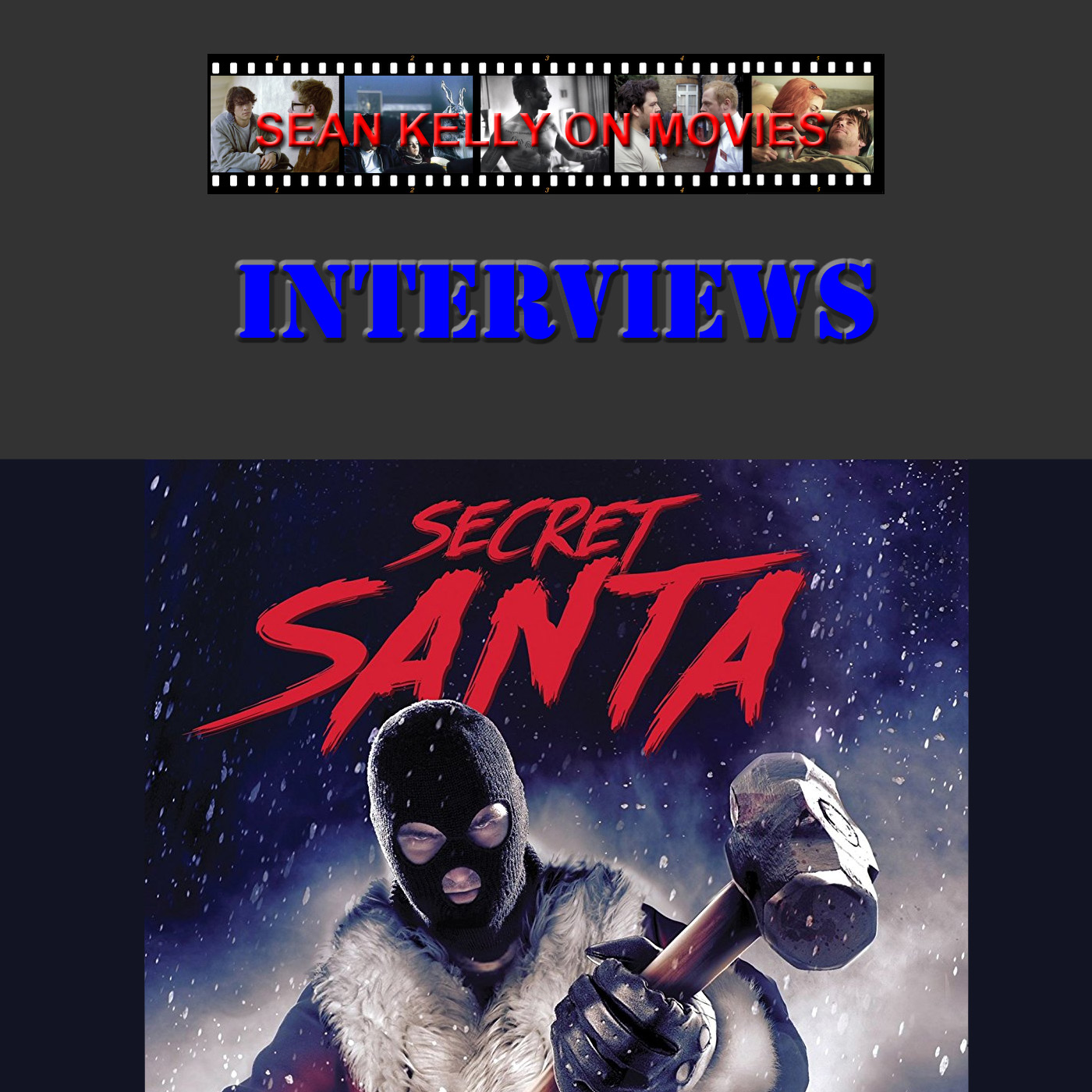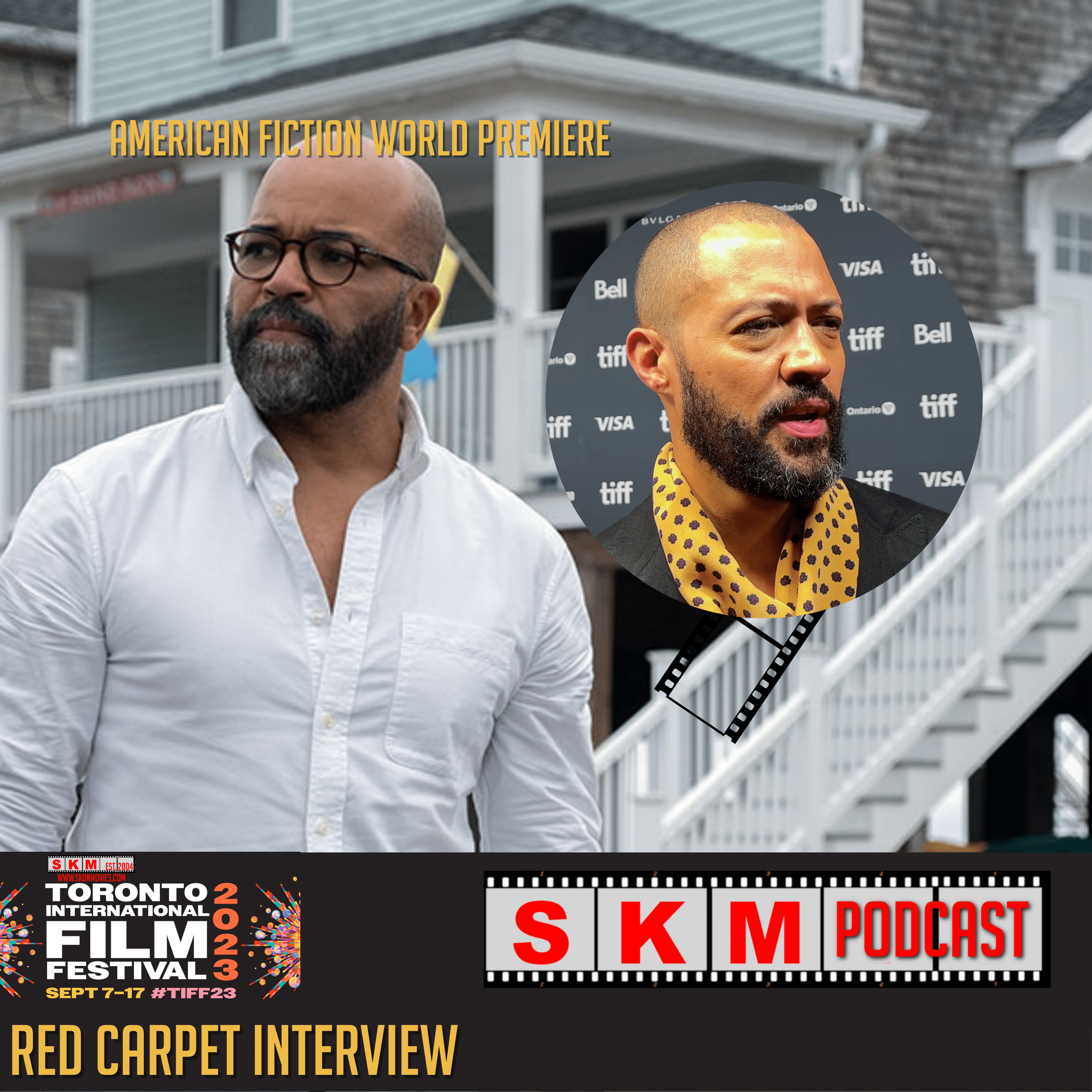[00:00:06] Speaker A: This is the Sean Kelly on Movies podcast for Tuesday, August 10, 2021, featuring an interview with Amelia Moses on Bleed with me.
Hello and welcome to the Sean Kelly on Movies podcast. Today I have an interview with Amelia Moses, whose film Bleed with me is now available on vod in Canada and is also available for streaming on shutter. This release is well timed since it was one year ago this month. That Bleed of me had its premiere as part of the Fantasia Film Festival, and it also played on Super Channel last fall as part of the Blood in the Snow Film festival, which is when I conducted this interview. I hope you enjoy.
So how did the idea for Bleed with me come about?
[00:00:51] Speaker B: Bleed with me was a concept I came up with, like, a couple years ago now. And the initial premise that I kind of want to explore was, like, a couple and a single person in an isolated location and kind of looking at those dynamics, and I really want to tell a story from a single perspective and a kind of unreliable narrator because the film obviously kind of deals with themes of, like, the way we kind of put narratives on other people. And usually in our real life, it's kind of we idealize people or kind of assume they have things better off than us. But in this version, she kind of concocts a more twisted narrative about her friend.
So I definitely wanted to keep it through Rowan's perspective and let everything kind of follow from there.
[00:01:36] Speaker A: So from the very start, Rowan is a bit of a third wheel on this cabin trip. So why would you think that she was invited in the first place?
[00:01:46] Speaker B: I think it has to do with the way Emily sees her and the more we understand about Emily's character, regardless of whether Emily is doing the things Rowan thinks she is. Cause I feel like the film's very up for interpretation, and I don't know if there's one set answer, but at the core of her character, she is, like, a caretaker, and she needs people to need her. So I think naturally, she's drawn to more introverted people, more insecure people, and I think she sees that as she's helping them. But I think, obviously, that is a weird kind of power dynamic, or.
[00:02:29] Speaker A: She.
[00:02:30] Speaker B: Sees herself as, you know, better. Better than as well, a little bit too. So I think sometimes people, a lot of times, I think you see that in real life, too, someone who's maybe more outgoing, an extroverted, might be very close friends with someone who's more, like, introverted. So I think that that happens sometimes as well, and dynamics. Friendship dynamics.
[00:02:49] Speaker A: So would you describe Brolin's experience throughout the film as being some form of gaslighting.
[00:02:55] Speaker B: Yeah, 100%, I think.
Yeah, I think that. I think what's kind of also at the core of Emily's character that I kind of wanted to explore was this disorder called Munchausen by proxy, which I'm sure you've heard of before, where, like, you make someone sick in order for you to take care of them or you harm someone in order that you are forced to take care of them. And that kind of gives you this feeling of power and that you are needed. And I think, inevitably, that definitely has an element of gaslighting in it because you're trying to convince someone that they're sick or crazy or that they're wrong in some way. So I think there's definitely an element of Emily. There's definitely an element of gaslighting in Emily's character, for sure.
[00:03:42] Speaker A: So much of the film is about the dynamic between Rowan and Emily. A vendor is also Emily's boyfriend, Brendan, who's kind of like a bystander to everything that's going on. So what would you say is his mindset throughout the film?
[00:03:58] Speaker B: Yeah, I mean, I think Brendan also kind of remains ambiguous as well. Like, I think that in the. Earlier on in the film, you're not sure kind of how involved he is. But I think very much he's not involved. And that was the intention to kind of let him be more of, like, he almost becomes the third wheel. Like, as the film goes on, and he's there kind of as a foil for the two women. Because I think, especially at the beginning, sometimes the two women are kind of talking to each other through him.
I think it's interesting sometimes when we only know a friend through their partner or only know their partner kind of through your friend. Like, Emily's the kind of the core person between these. These three people. Right. And I think she enjoys the fact that she is in that power position in this kind of triangle. And so I think Brendan's presence is important because he kind of shifts those dynamics sometimes. Not because who he is, but just by the very nature of him being there, the very nature of him existing.
But he's kind of supposed to remain more of a neutral person who can kind of push back against Emily at times.
[00:05:10] Speaker A: So talk a bit about the ambiguity of the film. So how do you expect audiences to, like, interpret what's going on?
[00:05:20] Speaker B: Yeah, I mean, I think that the core of the film, for me, is portraying this kind of codependent relationship. And also Rowan's kind of journey from desperately wanting something. So she wants friendship. She wants this confirmation of friendship from Emily and feeling secure in that. And then by the end of the film, spoilers, she doesn't get what she wants. And I think that's kind of interesting when characters sabotage themselves a little bit of. Because, again, regardless of whether Emily's really doing something, Rowan doesn't get what she wants or needed at the beginning of the film. And I think that's kind of interesting. And there was an opportunity where it almost could work. Both women kind of need each other and are kind of obsessed with each other for different reasons, but their friendship kind of works in a super fucked up way because they do both compliment each other.
But ultimately, Rowan doesn't succeed in that friendship, in that relationship.
I think kind of the ambiguity lies with more, like, the extent of what Emily is doing to her. So I think that you could read it as, like, it's really happening, and she's trying to consume her blood or take her blood, for whatever reason, as some way to weaken her and get her to stay, you know, that codependency thing as well.
Or you can read it somewhere in the middle. Like, there is an element of gaslighting in Munchauser by proxy, and she is making her sick, because that's much more of a grounded thing. But then Rowan is taking it to this kind of vampiric level of, like, Emily is this, like, monster figure, or. Nothing is happening at all. I feel like, inevitably, what the film suggests is that there's, like, it's somewhere in the middle. But I think films are interesting in the way that they can be open for interpretation.
You know, I. Obviously, it's dealing with vampiric imagery, but I never wanted to call it a vampire movie because there are no vampires. I didn't want there to be some expectation that there was going to be vampires, but it's obviously drawing from that. But a lot of people I've talked to about the film have just straight up being, like, she's a vampire, no doubt. So it's interesting. I really love that part of it where people can, um, put their own interpretation on it.
[00:07:44] Speaker A: Well, definitely this is moving into spoilers, but I think the biggest head scratcher in the film is when Rowan finds the scalpel and vile in the floorboards. And, like, you're wondering is, did Emily put it there, or did, like, Rowan and some sort of fugue state put it there? And.
[00:08:02] Speaker B: Yeah, no, I mean, I think that whether it's noticed by the audience or not, there was a conscientious effort in the script to establish things in the first half of the film. So there is a discussion about things behind hidden walls. Emily tells a story to them early on in the film, and it's supposed to just kind of one of those, like, spooky kind of urban legends, like, oh, I heard this story, you know, about someone living behind a wall.
[00:08:28] Speaker A: Oh, yeah.
[00:08:29] Speaker B: Yeah. So, like, that could potentially be something that then enters Rowan's head, right? As in terms of, like, something that could be getting under her skin and into her brain on top of that, like, it's. It's a very old house that I would imagine would have. Might have weird stuff. Obviously, that's next level weird to find this box.
But again, I think you could totally see it, see it different ways. I think that to some extent, the film is sort of about narratives and storytelling because she's creating a narrative that we don't know is true or not. And we hear lots of stories being told in the film. Like I just said, when the first night they're there, Emily tells that story about, you know, she knows so and so who knows so and so who had this experience where they. Someone was living in their apartment and they didn't know.
And then there's the whole story about the stalker and stuff. And so Rowan's very much kind of consuming these narratives, and they're getting into her brain, but also she's expressing these narratives, too, that have maybe not full art fully true or have, you know, she's potentially lying or she is lying about stuff as well.
[00:09:49] Speaker A: So for a film with only three characters, the casting was definitely important. So how did you cast the characters?
[00:09:56] Speaker B: Yeah, so I had done a short film with Leigh Marshall, who plays Rowan. We've done a short film called undressed me together in 2016. 2017. And I met her in the casting room for that. And it was just one of those things is like, as soon as I saw her audition, I knew she was great for the part. She was just, like, really a standout actress. And then we really bonded on set, and I think she was just really willing to kind of commit to that role. That was a body horror film. So there was a lot of blood and kind of special effects, practical effects and stuff, and she had to really throw herself into it. So I think the fact that she did all those things on that shoot really made me feel confident that she could bring a lot to the table in terms of Rowan. So I actually wrote bleed with me and Rowan's character with Lee in mind. I think she's very good at showing this kind of rawness and vulnerability. And it's a film that's all on her face, pretty much. So it was definitely a lot for her to carry.
And then Lauren Beatty. I had methadone working on a mutual friends short film a couple years back, and we were trying to shoot a scene from the film just for a grant application. And I asked her to act in it. And just because I knew she was an actor and she just really inhabited the role well. And she has a very, you know, intense face, and she really kind of embodied Emily very early on. This was before I even wrote the script. So again, I had her in my mind, too, in writing the script. And then when we got the funding, they were both on board to be in the film, which was great. And so the last person was. Was Brendan. So we did a more kind of traditional casting call for Brendan and landed on airy tyros, who did a really amazing job. And my main worry was kind of, like, the three of them all getting together, or, like, all, like, getting along, I guess, because we were in this cabin for a long time. It's just the three of them. Like, I didn't want. I wanted them to all be able to, like, trust and support each other. And they all really had great chemistry from very early on. And we spent a lot of time just kind of hanging out in advance to kind of prepare for that, kind.
[00:12:05] Speaker A: Of, like, I think, remember from the bits Q and A, there was something about limping up a hill.
[00:12:10] Speaker B: Yeah. So Lauren unfortunately got into a motorcycle accident on a trip, and we were shooting in January, and she called me in November, and she's like, I'm in a hospital in Mexico, and I can't walk currently.
So it was a bit frightening knowing we were going into production with her. And so I just said, keep me posted and let me know how things go. And so we kind of kept talking because I really, really wanted her for the role, and I didn't really want to have to find someone new. And I just knew she was the right fit.
And then she had recovered a fair bit. But then when we got onto set, her limp was much more prominent than I imagined it would be. To the extent that if we kind of didn't acknowledge it in the film, I don't know, I wasn't sure how to proceed. So we shot a few scenes, and I was still deciding what to do with it.
And then I think one of the producers, Marielle, had mentioned something about how if this character had a limp, purple life, she would walk quite differently than someone like Lauren, who had a very recent injury. You know, you carry your body quite differently than if you had experiences your whole life versus, like, you know, a more recent injury. So I felt like we needed to kind of acknowledge it and then kind of weaved it into the film with the idea that it's weakened Emily in a sense that if she's someone who very much likes to have control and doesn't, she likes to care for other people, all of a sudden now Brendan is caring for her, and she doesn't like that shift in dynamic. Again, this is not as concretely in the film. It's more like in the backstory.
So that was kind of how I approached the integration of it. But, yeah, on a practical level, the cabin was on top of this hill, and usually it wouldn't be too bad to walk up, but it was like end of winter, so it was like snow and ice all piled up. And very early on, we knew Lauren would not be able to walk up it. And so we had a system with a winch and a sled to get all the gear up there. So we're like, well, why don't we put Lauren in this sled? So we put blankets down and we'd bring her up the hill every day. So that was kind of a weird experience for her as well.
[00:14:19] Speaker A: All right, that'll be it.
[00:14:21] Speaker B: Amazing. There's some good questions in there. Thanks, Sean.
[00:14:31] Speaker A: The Sean Kelly on Movies podcast is hosted and researched by Sean Patrick Kelly and is a production of Skimmovies.com. hosting music and transitions courtesy of Anchor FM. Episodes and show notes can be found at skmmoviespodcast, CA. And you can subscribe to us via Spotify. Apple Podcasts, Google Podcasts, and whereas podcasts are hosted, support us by joining our
[email protected]. sk onmovies this has been the Sean Kelly on Movies podcast for August 10, 2021. One and I'll see you next time.
Our channel.


